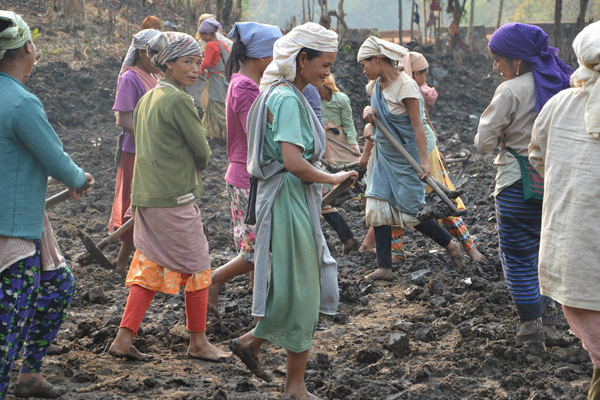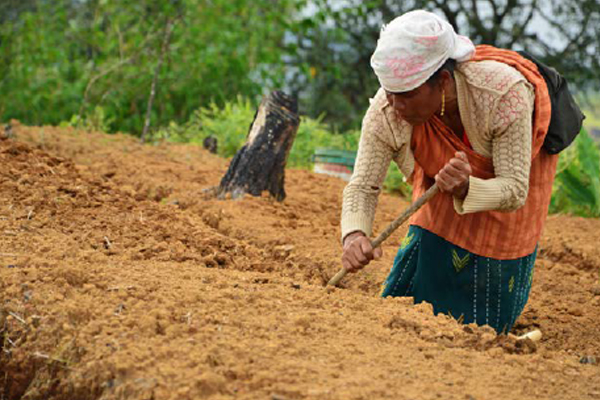Like many farmers across the East Jaintia Hills district, Kyrsiew Ryngkhlem from Wapung Skur Village struggled to sustain livelihood activities and support her family due to farmlands becoming infertile because of coal mining. Across the region, previously green vegetative landscapes have become barren and dry. Although the coal mining sector is a major contributor to the state’s revenue and has created many livelihoods, the negative impacts on the environment continue to worsen. These impacts include depleting natural resources, pollution, health implications, agricultural productivity, and traditional livelihoods.
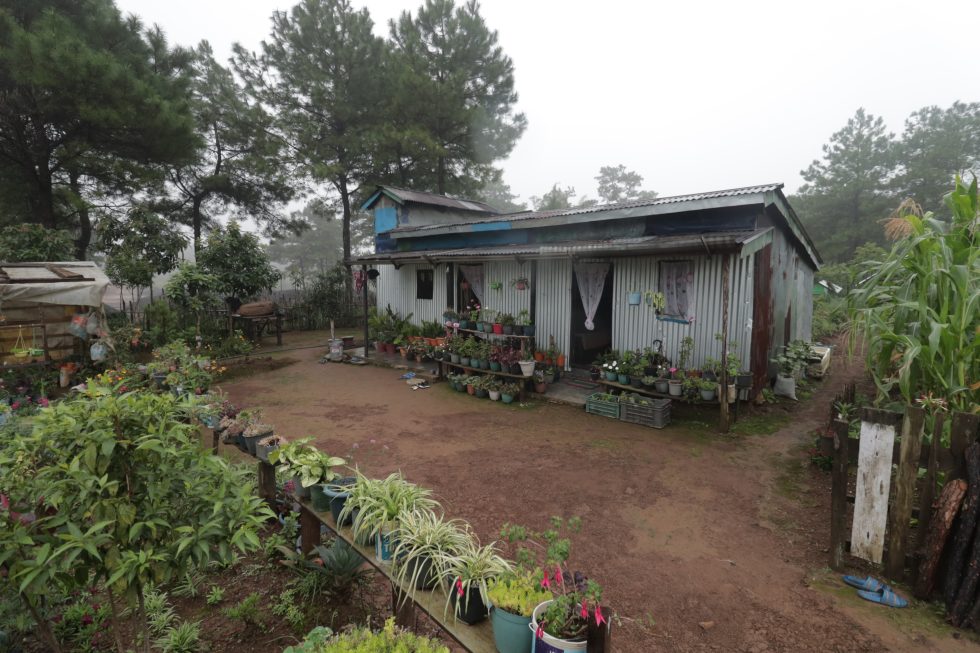
But the 40-year-old Kyrsiew was proactive and was able to counter the challenges with a unique innovation that has since become her own low-cost solution to mine-spoiled farmlands.
Initially, the organic manure-making activity was small-scale. The process involved collecting the grass that grew in and around her kitchen garden and drying it for two weeks. She would then crush the dried grass into pieces and place them in a pit with cow dung and swine manure for another thirty days. After that, she would mix them with weeds from the garden, the outer layers of the areca nut, and any other biodegradable waste she could find. Once dried, her organic manure was ready for use.
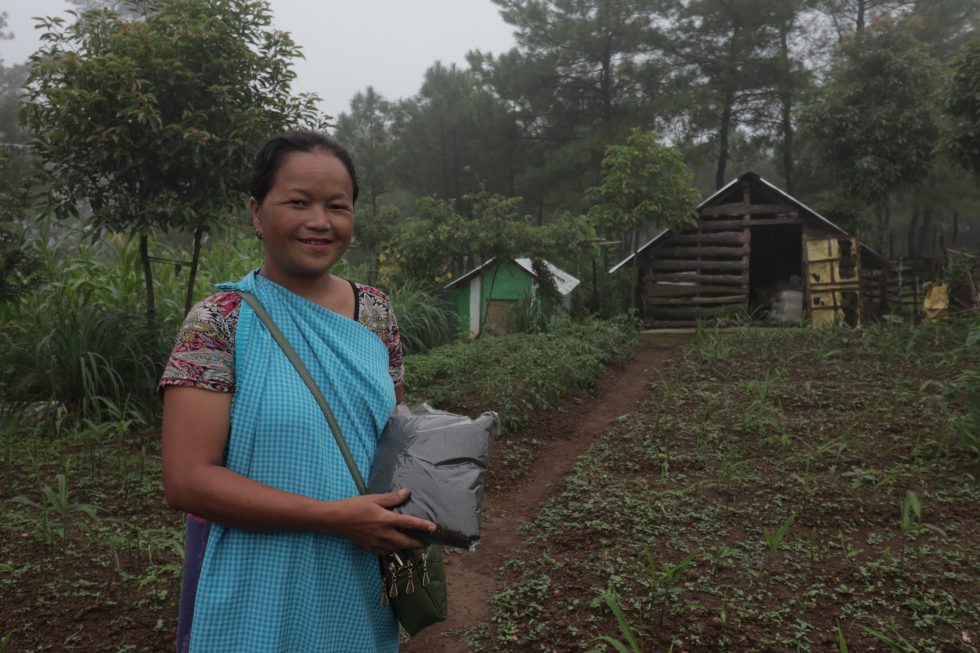
After seeing how well it worked, she wanted to expand her activities and explore the potential of her homemade organic manure. In 2015, she bought a plot of uncultivable land measuring approximately 700 sq. meters. Kyrsiew was convinced that the experiment would eventually result in soil health restoration and water retention. She started by tilling the ground and using limestone to neutralize the acidity of the contaminated soil, and patiently waited.
Within three years, the innovation had reaped rewards. Vegetables were growing abundantly, and Kyrsiew was able to sell them at local markets. She also became a member of a community Ginger Producer Group under the Wapung Skur Integrated Village Cooperative Society Ltd. (IVCS) to avail collective marketing benefits and improved returns.
CLLMP soon took notice of her activities. As part of the project’s initiatives to promote and strengthen Meghalaya’s grassroots innovations and traditional knowledge, Kyrsiew was provided with support funding worth Rs. 3.3 lakhs to sustain and upscale her activities. She utilized this funding to build three compost tanks, a cow shed, a piggery shed, and a goat shed.
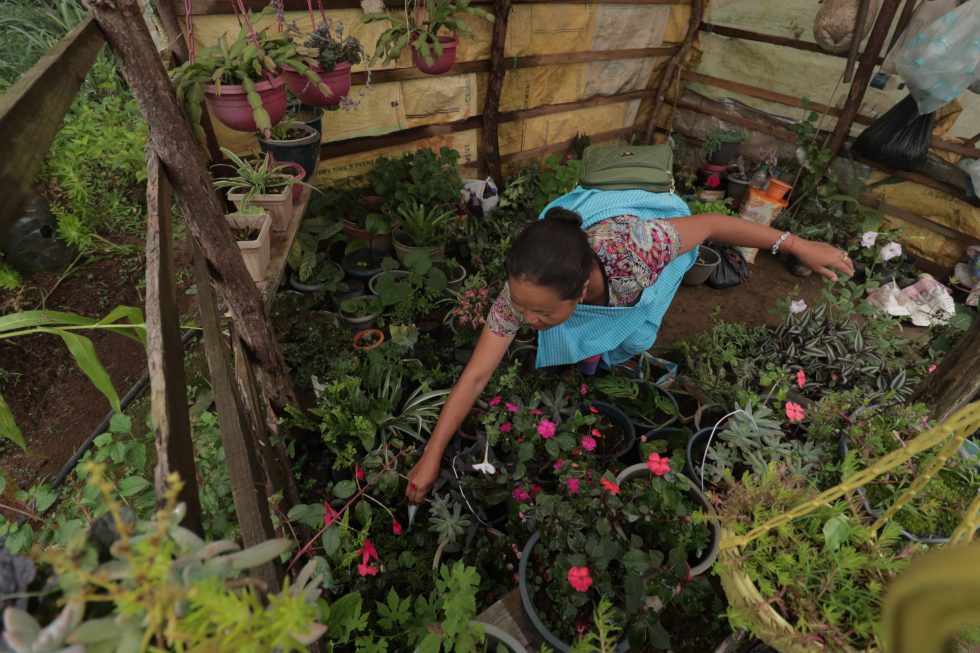
To date, Kyrsiew has produced about 2 tonnes of organic manure, of which 1.79 tonnes have been sold to over 500 farmers cultivating across approximately 300 hectares of agricultural lands. The East Jaintia Hills district team of CLLMP arranged for her participation in the two-day Skill Mela conducted by Meghalaya State Skill Development Society in West Jaintia Hills in June 2022 and the 2nd North-East Buyer-Seller Meet in Guwahati the following month, organized by the Indian Chamber of Commerce in association with the Ministry of External Affairs, Government of India. At the latter event, Kyrsiew had a big opportunity to showcase her innovation, interact with other entrepreneurs and farmers, and exchange learning and knowledge. MBMA’s other externally aided project, the IFAD-supported Meghalaya Livelihoods and Access to Markets Project (Megha-LAMP), also recognized her good work and invited Kyrsiew to be part of the Knowledge-Sharing Event on community best practices where she was felicitated.
Back in Wapung Skur and away from the spotlight, Kyrsiew prefers the quiet life. Besides the organic manure-making activity, she spends her free time imparting land rehabilitation training to other farmers, producers, and community members of the Village’s NRM Committee.
